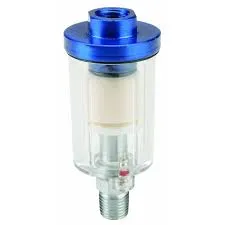Oct . 18, 2024 17:02 Back to list
High-Performance Marine Hydraulic Cylinder Solutions for Enhanced Efficiency and Reliability
The Importance of Marine Hydraulic Cylinders in Modern Maritime Operations
Marine hydraulic cylinders are vital components in the world of maritime engineering, playing a crucial role in the functioning of various marine equipment and vessels. These cylinders are designed to convert hydraulic energy into mechanical energy, which enables them to perform a wide range of tasks with precision and efficiency. From operating deck machinery to controlling the steering systems of ships, marine hydraulic cylinders are fundamental to enhancing the effectiveness and safety of maritime operations.
Understanding Hydraulic Cylinders
A hydraulic cylinder consists of a cylindrical barrel, a piston, and seals. When hydraulic fluid is pumped into the cylinder, the pressure pushes the piston, causing it to move. This linear motion can be harnessed to perform work, such as lifting, pushing, or rotating heavy loads. The simplicity of this mechanism combined with its strength makes hydraulic cylinders highly suitable for marine applications, where reliability and endurance under extreme conditions are paramount.
Applications in the Maritime Industry
Marine hydraulic cylinders are employed in various applications across the maritime sector, including but not limited to
1. Deck Machinery These cylinders are integral to the operation of winches, cranes, and other deck equipment. They allow for precise control of loads, making it easier to handle cargo and perform maintenance tasks onboard ships.
2. Steering Systems In modern vessels, hydraulic steering systems leverage the power of hydraulic cylinders, allowing for smooth and responsive navigation. This is particularly important in large vessels where manual steering would be impractical.
3. Trawling and Fishing Operations Fishing boats utilize hydraulic cylinders to operate trawl doors, nets, and other fishing gear efficiently. This technology enhances the productivity of fishing operations while ensuring the safety of crew members.
4. Lifting and Launching Operations Hydraulic cylinders are used in the launching systems for lifeboats and other emergency equipment. They ensure that such systems function reliably under stress, providing peace of mind for crews and passengers.
5. Aquaculture Hydraulic systems are also prevalent in aquaculture, facilitating the movement of cages and feeding systems in fish farms.
marine hydraulic cylinder product

Advantages of Marine Hydraulic Cylinders
The use of hydraulic cylinders in marine applications boasts several advantages
- High Power-to-Size Ratio Hydraulic systems can generate significant force without requiring large, bulky machinery. This is particularly beneficial in confined spaces commonly found on ships.
- Precise Control The ability to control hydraulic flow allows for fine adjustments in speed and force, making it easier to handle sensitive equipment and operations.
- Durability Designed to withstand harsh marine environments, hydraulic cylinders are often constructed from corrosion-resistant materials, ensuring a longer service life with minimal maintenance.
- Safety By providing reliable control over heavy loads, hydraulic systems enhance the safety of operations on vessels, reducing the risk of accidents and injuries.
Challenges and Considerations
Despite their many advantages, marine hydraulic cylinders are not without challenges. Potential issues can include hydraulic leaks, which can lead to system failures or environmental concerns. Therefore, regular maintenance and monitoring are essential to ensure optimal performance and to mitigate risks. Moreover, advancements in technology are continuously driving improvements in the design and efficiency of these cylinders, which contributes to mitigating some of these challenges.
Conclusion
As the maritime industry continues to evolve, the need for efficient, reliable, and powerful systems will only grow. Marine hydraulic cylinders play an indispensable role in meeting these demands. Their ability to operate under austere conditions while providing precision control makes them crucial for various applications. By harnessing the power of hydraulics, the marine sector can enhance its operational capabilities, boost safety, and improve overall performance, ensuring that vessels can navigate the waters with ease and efficiency. As we look to the future, continued innovation in hydraulic technology will undoubtedly enhance the capabilities of marine hydraulic cylinders, further solidifying their place as a linchpin in maritime operations.
-
China Carbon Fiber Hydraulic Cylinder Light & Durable
NewsJun.05,2025
-
Premium T5 Hydraulic Slave Cylinder Factories Quality Production
NewsJun.05,2025
-
Wingspan Power Unit Company Efficient Power Solutions for Industry
NewsJun.04,2025
-
High-Performance Wingspan Power Unit Products Energy Solutions
NewsJun.04,2025
-
Premium Curved Hydraulic Cylinders Durability & Precision
NewsJun.04,2025
-
Heavy-Duty 3x8 Hydraulic Cylinder Premium Industrial Solution
NewsJun.04,2025
